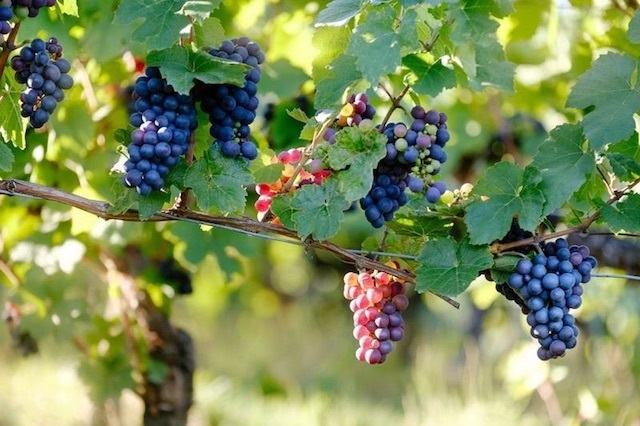
Even if you’ve been an avid wine collector for years, you might have put your focus on a single wine varietal or a specific wine region. Whether you pursued it out of personal preference or for its investment value, such a focused wine collection might have caused you to bypass other worthwhile and intriguing fine wines.
One of those wines is Syrah, a bold, full-bodied wine with intense berries, fruits, licorice and black pepper. Its deep purple or reddish-purple color is noticeably distinct from better-known red varieties like Cabernet Sauvignon and Merlot, and it captures attention wherever it goes.
Wine enthusiasts and collectors are becoming more familiar with this dazzling wine, which is all the more reason to dive in and seek it out for yourself.
What Is Syrah Wine and Where Does It Come From?
Now that we’ve piqued your interest, we’d like to explore the history of Syrah and detail which countries produce this high-class wine.
A Brief History
Although Syrah is a newer arrival in some wine circles, it is by no means a new wine. Syrah has a long history in France’s Rhone Valley, where it has been grown and produced for generations.
Sometimes rumors start up about lesser known wines, and that’s no exception with Syrah. Claims run the gamut from origins in the Iranian city of Shiraz to the Sicilian city of Syracuse – and that's just to start.
The truth, as verified by plant geneticist Carole Meredith in 1998, is that Syrah hails from the cooler climate of the Rhone Valley, where it has long been held in high regard. Syrah is the descendent of two older local grapes – Dureza and Mondeuse Blanche. While it originated in that region, its exact year of discovery may never be known.
Syrah made its way to Australia in 1831 when James Busby collected vine cuttings from the varietal. Happily, the vines thrived in the hot Australian climate, and in no time, the Syrah name morphed into Shiraz.
California’s Napa Valley also saw its first Syrah vine cuttings in 1878. While those vines failed to survive an outbreak of phylloxera, the Syrah varietal made its comeback around 1898.
Current Terroir for Syrah Wine
Today, Syrah comes from a variety of countries and regions with climates ranging from cooler continental and coastal to warmer Mediterranean. Many Syrah vineyards sit at higher elevations, where they take advantage of south-facing sunny slopes.
Where You’ll Find Syrah:
- France: Northern Rhone Valley, in particular around Hermitage, Cote Rotie, Cornas and Saint-Joseph.
- France: Southern Rhone Valley. It is not as prevalent here, but is still produced as blends in Cote du Rhone and Chateauneuf-du-Pape.
- Australia: In the Barossa Valley, Clare Valley, Hunter Valley, McLaren Vale, Heathcote and Eden Valley.
- United States. The wine has good standing in California’s Napa Valley, Sonoma Valley and in Santa Barbara; Oregon’s Rogue Valley, Umpqua Valley and Walla Walla Valley; and Washington’s Yakima Valley and Columbia Valley.
- Additionally, it has a small but growing presence in South Africa, Chile, Spain and Italy
Syrah vs Shiraz: What’s the Difference?
Before we move further, we want to help clear up a common misconception. Syrah and Shiraz are produced from the same grape varietal, not from two separate grapes. Historically, Shiraz has simply been the Australian name for Syrah, but this name designation now extends beyond borders.
- Syrah that is grown in cooler climates typically follows France’s long-standing practice by keeping the name Syrah.
- Syrah grown in hotter climates, even outside of Australia, typically goes by the name Shiraz.
Along with name designations, the differing climates also bring out distinct flavor profiles. Let’s explore that further.
What Does Syrah Taste Like?
Syrah vines grown in cooler climates typically see a limestone-, sand-, gravel- or clay-based soil, or one with a mixture of each. The vines must work harder to seek out the nutrients they need; as a result, cooler-climate Syrah tends to have deeper notes of pepper, tart fruit, herbs, earthiness, and higher acidity and tannins.
In a hotter climate, Syrah – or Shiraz, as it is nearly always called – is more likely to live in sandy or sandy-loamy soils. These Syrah grapes thrive on readily accessible irrigation and full sun, which jointly offers up a flavor profile of rich black fruits and berries, along with chocolate, spices and smooth tannins.
JJ Buckley Fine Wines – Syrah Wine Recommendations
Below you’ll find our curated list of exceptional Syrah wines, which come from a variety of countries and wine-growing regions.
1. Clarendon Hills Astralis – Australia, McLaren Vale
1999 Shiraz, 750mL $159.94
2003 Shiraz, 750mL, $174.94
2004 Shiraz, 750mL, $184.94
2005 Shiraz, 1.5L, $359.00
2006 Shiraz, 750mL, $159.94
2006 Shiraz, 1.5L, $345.00
2. Cayuse Vineyards Bionic Frog – Washington State, Walla Walla Valley
2005 Syrah, 750mL, $350.00
2010 Syrah, 750mL, $315.00
3. Penfolds Grange – Australia, Barossa Valley/McLaren Vale/Clare Valley
2009 Shiraz, 1.5L, $975.00
4. Paul Jaboulet Aine Hermitage La Chapelle – France, Northern Rhone, Hermitage
2004 Syrah, 750mL, $99.94
2005 Syrah, 750 mL, $189.94
2012 Syrah, 750 mL, $159.94
2013 Syrah, 750mL, $239.94
5. JL Chave Hermitage Cuvee Cathelin – France, Northern Rhone, Hermitage
2009 Syrah, 750mL, $4799.99
6. Guigal Hermitage Ex Voto – France, Northern Rhone, Cote Rotie
2013 Syrah, 750mL, $294.94
7. Guigal Cote Rotie 'La La’s' – France, Northern Rhone, Cote Rotie
La Turque
2013 Syrah, 750mL, $284.94
2014 Syrah, 750mL, $299.94
La Mouline
2012 Syrah, 750mL, $269.94
2013 Syrah, 750mL, $259.94
2014 Syrah, 750mL, $325.00
La Landonne
2014 Syrah, 750mL, $315.00
8. Colgin IX Syrah – California, Napa Valley
2004 Syrah, 750mL, $199.99
2006 Syrah, 750mL, $129.94
If you’re interested in adding another fine wine to your collection, you’ll certainly find much to love from these and many other Syrah wines. For assistance in selecting high-quality wines, feel free to reach out to our wine experts at JJ Buckley Fine Wines.